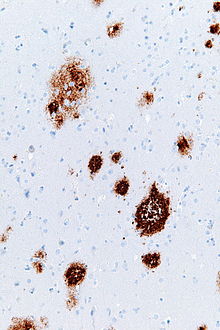October is National Domestic Violence Awareness Month. A friend of mine inspired me to make a post on it. I just recently finished my Community/Public Health nursing course this month and it was quite timely as indicated above.
First off, here is a quote that many of you may have heard from Martin Luther King Jr.
This quote especially applies to IPV, or intimate partner violence. Intimate partner violence is primarily violence against women. I attended a very good lecture that lasted a couple hours long a couple weeks ago where a physician from the State of Utah brought her team and discussed with us nursing students the topic of IPV. Did you know...
- 1 in 3 women report being victims of IPV
- Females between the ages of 20-34 are at the greatest risk of IPV
- 4-8% of women are abused during pregnancy
- 37% more likely to deliver preterm
- 17% more likely to deliver SGA infants
- 30% more likely to have neonates requiring ICU care
- Homicide is a leading cause of death for pregnant and post-partum women
- Domestic abuse & IPV go together in most cases
So, obviously IPV is a very big problem in our country. I'm not sure you or I realize what a problem it is in our society, at least I didn't prior to hearing this lecture. The problem about IPV in the past is that it is something that most people are afraid to talk about, it is a topic swept under the rug and only spoken about in hushed tones behind closed doors. That is partially why it has become such a big problem. WE need to bring it out in the open, and discuss it as we would discuss any everyday item. Only through IDENTIFICATION and ACKNOWLEDGMENT of abuse will we be able to end the cycle. It is such a tragedy that there is a 33% chance that any woman you randomly run into in this country has been a victim of IPV.
- 1 in 3 women report being victims of IPV
- Females between the ages of 20-34 are at the greatest risk of IPV
- 4-8% of women are abused during pregnancy
- 37% more likely to deliver preterm
- 17% more likely to deliver SGA infants
- 30% more likely to have neonates requiring ICU care
- Homicide is a leading cause of death for pregnant and post-partum women
- Domestic abuse & IPV go together in most cases
- 36% of Utah women presenting to LDS hospital had been a victim of IPV at some point in their lives
- 13% of Utah high school students were also victims (from their dating partner)
- 29% of Utah women had experienced a sexual offense
- Since 2000, domestic violence-related homicide accounted for 40% of all adult homicides
So it's very much a problem here in Utah, actually it is slightly higher here in Utah than it is nationally. So listen up! IPV is about power and control, a man will use behaviors to establish and maintain control over his partner. It can be emotional/psychological, physical, or sexual abuse. And yes, some men are victims of IPV as well. A woman does not just leave a violent relationship, she has to ESCAPE from one, for their own safety, and the safety of her children.
In conclusion, I GUARANTEE that you know people that are/have been victims of IPV. Maybe you are aware of it and maybe you are not. IPV should not be a 'private matter' and it is not just a law enforcement or criminal justice concern, it is a concern of all of us.
So if you are a victim of IPV, know that you have resources in the community that can help you get restarted after you escape. Please do not be afraid of leaving, but do it with intelligence and caution and remember that NOTHING that happens as a result of you leaving is your fault, it is ALL ON THE PERPETRATOR. ALL! And if you know of someone that is currently a victim or has been one in the past, you need to be genuine, nonjudgmental, and supportive. If you suspect a friend or family member is a victim because of something you witness, ask them about it--because if you don't ask, they won't tell.
To report abuse or share with someone what you are going through, you can call the numbers below.













